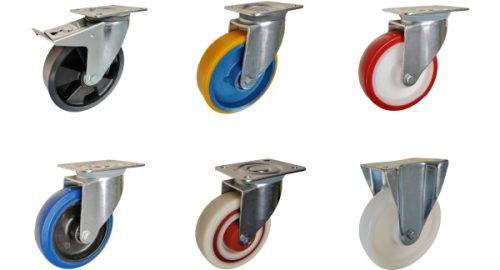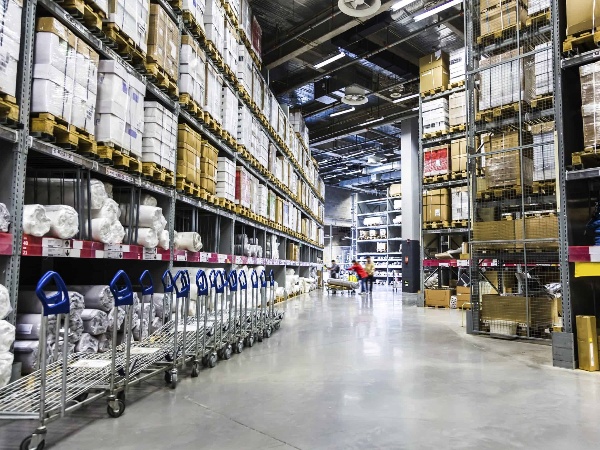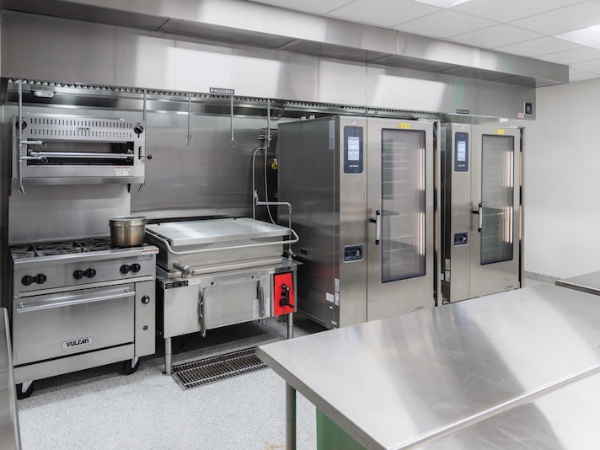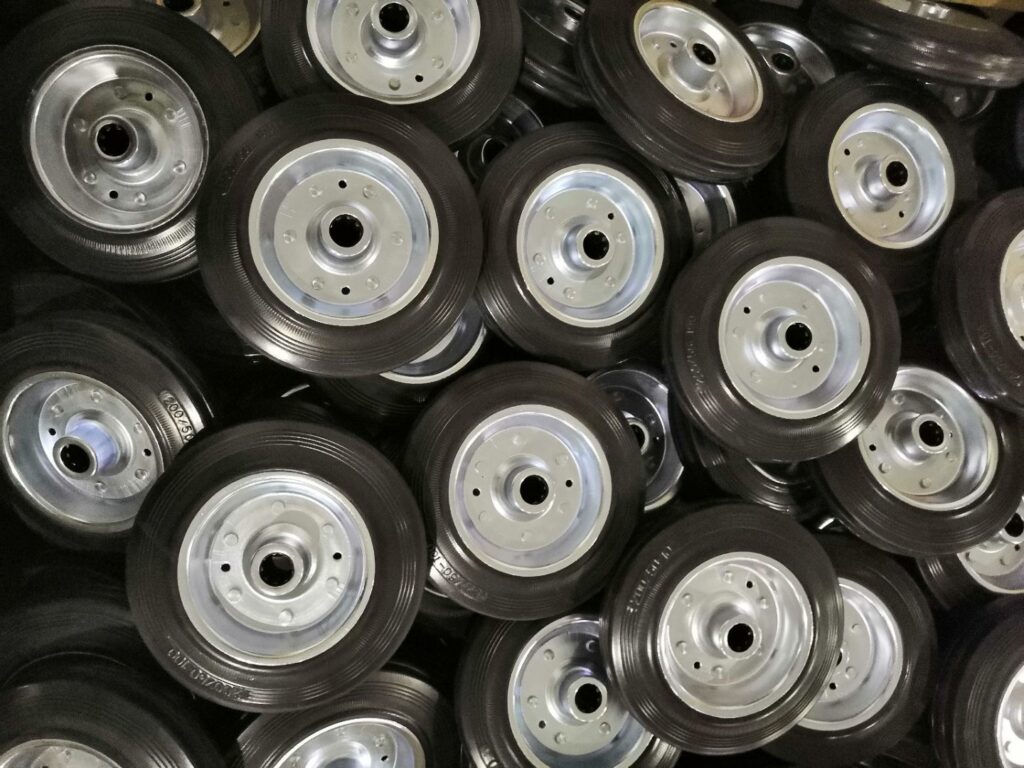Nylon Casters
With over 20 years in the industry, Techin offers a comprehensive range of high-quality industrial casters designed to meet the rigorous demands of various applications. Our products undergo stringent quality control processes and are backed by certifications and test reports to ensure reliability and safety. With an advanced automatic production line, Techin guarantees precision, speed, and quick delivery to meet your business needs. Contact us today to request a free quote or more information.
REQUEST A QUOTE FOR MORE DETAILS
All You Need to Know About Industrial Casters
Industrial casters are essential components for heavy-duty applications, providing mobility and support for equipment and machinery. These casters come in various designs, materials, and sizes, each tailored to specific industrial needs. Whether it’s for manufacturing plants, warehouses, or medical facilities, choosing the right caster is crucial for operational efficiency and safety.

Features of Industrial Casters
Industrial casters are specialized components designed to support the rigorous demands of heavy-duty environments. These casters are crucial for ensuring the smooth and efficient movement of heavy machinery and equipment in industrial settings.
- Heavy Load Capacity: Industrial casters are engineered to support significantly heavier loads compared to standard casters, often handling weights of several tons.
- Reinforced Construction: Built with high-grade materials such as reinforced steel and durable polymers, industrial casters are designed to withstand heavy impacts and constant use.
- Advanced Bearing Systems: Featuring precision ball bearings or roller bearings, these casters provide smooth movement and reduce friction under heavy loads.
- High Temperature Resistance: Designed to operate in extreme temperature conditions, industrial casters maintain performance in environments ranging from freezing cold to intense heat.
- Chemical Resistance: Many industrial casters are made from materials that can withstand exposure to harsh chemicals, making them suitable for use in chemical plants and other hazardous environments

Industrial Casters and Wheels Applications
Industrial casters are indispensable across various industries, providing mobility, support, and efficiency for heavy equipment and machinery. Their versatility makes them essential for enhancing operational workflows, safety, and convenience. Below are some detailed applications of industrial casters in different sectors:
Manufacturing Plants
Industrial casters are crucial in manufacturing environments, facilitating the movement of heavy machinery, raw materials, and finished products. They are integral to production lines, allowing for the easy repositioning of equipment and materials. This mobility enables manufacturers to optimize their floor space, quickly adjust to production demands, and improve overall efficiency. Common uses include:
- Assembly Lines: Casters on conveyor systems and workbenches enable smooth transitions between different stages of production.
- Material Handling Carts: Used to transport raw materials and components to various production areas, reducing manual handling and enhancing productivity.
- Machinery Mobility: Heavy-duty casters on machinery and equipment allow for easy relocation and maintenance access.

Warehouses and Logistics Centers
In warehouses and logistics centers, industrial casters play a vital role in material handling and storage solutions. They help streamline the movement of goods, improving workflow and reducing physical strain on workers. Key applications include:
- Pallet Jacks and Dollies: Casters on pallet jacks and dollies facilitate the easy transport of heavy pallets and crates.
- Storage Racks: Mobile storage racks with casters allow for flexible storage solutions and efficient use of space.
- Transport Carts: Casters on transport carts enable quick movement of products within the warehouse, enhancing order fulfillment speed.

Retail Environments
In retail settings, industrial casters enhance the shopping experience by providing mobility for display racks, shopping carts, and storage units. They allow retailers to quickly adapt store layouts and manage inventory efficiently. Typical uses include:
- Display Racks: Casters on display racks enable easy rearrangement of products to accommodate promotions and seasonal changes.
- Shopping Carts: Durable casters ensure smooth operation of shopping carts, improving customer convenience.
- Stock Room Equipment: Mobile storage units and carts help in the efficient handling of stock and replenishment of shelves.

Food Service Industry
The food service industry benefits significantly from the use of casters on various kitchen and service equipment. Casters contribute to the efficient and hygienic operation of food preparation and service areas. Applications include:
- Kitchen Equipment: Casters on ovens, refrigerators, and prep tables allow for easy cleaning and maintenance.
- Serving Carts: Used in restaurants and catering services to transport food and beverages swiftly and safely.
- Storage Racks: Mobile racks help organize and store kitchen supplies, ensuring quick access and efficient use of space.

Advantages of Industrial Casters
Investing in industrial casters offers numerous advantages that enhance the efficiency and safety of industrial operations. These casters are specifically designed to handle the heavy demands and harsh conditions of industrial environments.

- Enhanced Load Management: Industrial casters facilitate the easy movement of heavy equipment, reducing the physical strain on workers and preventing workplace injuries.
- Improved Operational Efficiency: By enabling the smooth and swift transportation of machinery and materials, these casters contribute to faster workflows and reduced downtime.
- Durability and Longevity: Constructed from robust materials, industrial casters offer exceptional durability, minimizing the need for frequent replacements and repairs.
- Versatility Across Applications: Suitable for various industrial settings such as manufacturing plants, warehouses, and distribution centers, these casters can be adapted to multiple uses.
- Enhanced Safety Features: With integrated brakes, locks, and robust design, industrial casters enhance workplace safety by preventing uncontrolled movement and ensuring equipment stability.
- Cost Savings: The longevity and durability of industrial casters lead to long-term cost savings, as businesses spend less on maintenance and replacements over time.
The choice of materials in the construction of industrial casters significantly impacts their performance, durability, and suitability for specific applications. Understanding the properties of these materials helps in selecting the right caster for your industrial needs.
- Steel: Renowned for its exceptional strength and durability, steel is commonly used for both the frames and wheels of industrial casters. It provides excellent load-bearing capacity and resistance to impact.
- Polyurethane: Polyurethane offers a unique combination of flexibility and toughness. It’s ideal for wheels that need to absorb shocks and reduce noise, making it suitable for applications that require quiet operation.
- Nylon: Lightweight yet incredibly strong, nylon casters are highly resistant to chemicals and abrasion. This makes them ideal for environments where exposure to harsh substances is common.
- Rubber: Rubber casters provide good traction and cushioning, ensuring smooth and quiet movement. They are perfect for applications where noise reduction and floor protection are priorities.
- Cast Iron: Extremely durable and resistant to wear, cast iron casters are designed for heavy-duty applications. They can withstand harsh environments and are capable of carrying very heavy loads.
In the caster industry, several European standards serve as guidelines to ensure the quality, safety, and environmental compatibility of products. Here, we provide an overview of some pivotal standards that are commonly adhered to:
These standards are integral in guiding manufacturers to produce products that are not only of high quality but also safe and environmentally responsible. Adherence to these standards is often seen as a mark of reliability and trustworthiness in the industry.
Selecting the right caster and installing it correctly is a vital aspect in ensuring the longevity and functionality of your equipment.
Selecting the right caster and installing it correctly is a vital aspect in ensuring the longevity and functionality of your equipment.
We also outline a systematic approach to guide you through the process of selecting and installing casters:
- Determine Your Product and Mounting Type: The first step involves identifying the type of product you are working with and the appropriate mounting method. Different products may require varied mounting techniques, and understanding this is crucial in selecting the right caster.
- Understanding Load Capacity: Before selecting a caster, it is essential to determine the load capacity it needs to handle. The load capacity is calculated using a specific formula that considers various factors including the deadweight of the transport unit, the maximum additional load, and the number of wheels or casters used. Safety factors, influenced by the speed and the ratio between wheel diameter and height of the obstacles, also play a significant role in determining the load capacity.
- Select Your Tread Material: The tread material significantly influences the operational comfort, smooth-rolling performance, and resistance characteristics of the wheels or casters. It is vital to choose a tread material that is softer than the floor to prevent damage.
- Determine Maneuverability: Understanding the maneuverability factors such as starting, rolling, and swivel resistance is crucial in selecting the right caster. These factors are influenced by various elements including wheel diameter, load, floor condition, and bearing type.
- Select the Bearing Type: The bearing type is a critical aspect that affects the rolling characteristics of a wheel. Different bearing types, such as plain bore bearing, roller bearing, and central ball bearing, offer varied performance characteristics and are suitable for different applications.
- Consider Your Application’s Environmental Influence: The environmental conditions where the caster will be used should be considered, especially in cases where the components may come into contact with aggressive substances. Factors such as chemical resistance, temperature, and humidity can influence the choice of caster.
- Additional Options and Requirements: Depending on your specific needs, you might require additional features such as locking systems for rolling and/or swivel motions, or brake systems. Understanding these additional requirements is vital in selecting the right caster.
Frequently Asked Questions
To continue to provide valuable information for our B2B clients, here are another ten FAQs that delve deeper into the aspects that most concern our target customers.
Do you offer free samples?
Yes, we offer product samples to give you a firsthand experience of the quality and variety we bring to the table.
Do you have any certifications?
Certainly, our products proudly bear recognizable certifications like EN840, REACH, RoHS, PAHs, EN12530 etc. These symbols of excellence guarantee that you receive products that meet international standards.
Is there a warranty period for your products?
All of our products come with a standard warranty period, reinforcing our commitment to quality and customer satisfaction.
How do you ensure timely delivery of orders?
We have a streamlined production schedule and robust logistics partnerships to ensure that your orders are delivered on time, every time.
Is it OK to print my logo on casters ?
Sure. We could build the molds and fixtures upon your sample or technical drawings, add your logo on fork or wheel, and pack the casters in your branded carton

